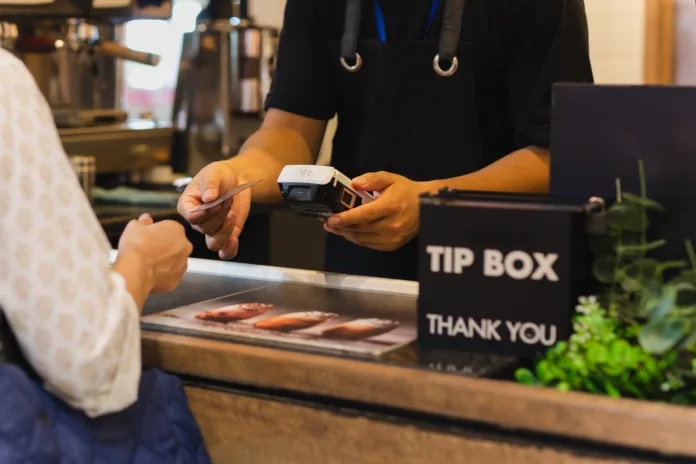Controversy erupts as coffee purchase triggers automatic tipping, sparking debate on social media
In a viral TikTok post, user @cbwritescopy, known as Christian, shed light on the contentious issue of mandatory service charges in the United States, particularly his experience in Miami where tipping has taken an unexpected turn. The TikToker expressed his frustration at receiving a mandatory service charge with his pumpkin spice latte, emphasizing the lack of choice in the matter.
In the video, Christian recounts his astonishment at not being given the option to tip but instead faced a pre-determined ‘service charge’ on his bill. He argues that while he is more than willing to tip for a sit-down meal with excellent service, the practice of mandatory tipping for a simple cup of coffee seems excessive and out of control.
Embed from Getty ImagesThe TikTok post quickly gained traction, sparking a widespread debate on social media platforms. Many users chimed in with their own experiences and opinions on tipping practices in the United States. Some expressed frustration at automatic gratuities in various establishments, including restaurants that add a standard percentage to bills without customer consent.
The controversy extended beyond TikTok, with users on other platforms sharing similar encounters and sharing their perspectives on the tipping culture. One commenter highlighted the prevalence of automatic gratuities in Miami, mentioning that many restaurants add an 18 percent gratuity to bills by default, potentially leading to unintentional double tipping.
As the debate rages on, Christian’s TikTok has become a focal point for discussions on tipping norms, with users questioning the appropriateness of mandatory service charges for everyday transactions. The post has underscored the broader issue of tipping practices in the US, raising questions about whether tips should be discretionary rewards for exceptional service rather than mandatory components of routine purchases.
